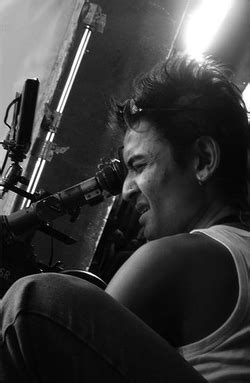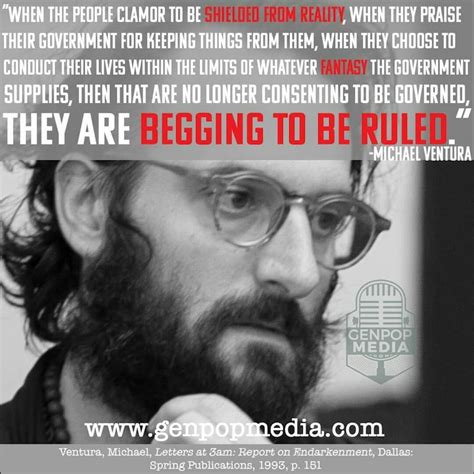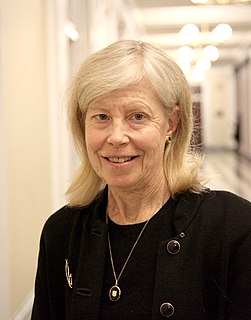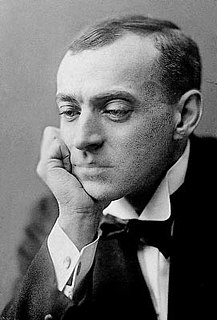A Quote by Stanislaw Lem
Really, one of us ought to have the courage to call the experiment off and shoulder the responsibility for the decision, but the majority reckons that that kind of courage would be a sign of cowardice, and the first step in a retreat. They think it would mean an undignified surrender for mankind as if there was any dignity in floundering and drowning in what we don't understand and never will.
Related Quotes
In face of this modern nihilism, Christians are often lacking in courage. We tend to give the impression that we will hold on to the outward forms whatever happens, even if God really is not there. But the opposite ought to be true of us, so that people can see that we demand the truth of what is there and that we are not dealing merely with platitudes. In other words, it should be understood that we take this question of truth and personality so seriously that if God were not there we would be among the first of those who had the courage to step out of the queue.
Let us have the courage to defy the consensus, the courage to stand for principle. Courage, not compromise, brings the smile of God’s approval. Courage becomes a living and an attractive virtue when it is regarded not only as a willingness to die manfully, but also as a determination to live decently. A moral coward is one who is afraid to do what he thinks is right because others will disapprove or laugh. Remember that all men have their fears, but those who face their fears with dignity have courage as well.
I think that each of us is so much alike, and yet at the same time we are so different, and I have a feeling that if you encountered difficulty, and I with my age encountered the same difficulty, I would respond one way, and you would respond another. Neither would be right or wrong. It's just that each of us is courageous, and that's what I encourage, courage, and the courage to see, and the courage to say to oneself what one has seen. Don't be in denial.
Countrymen, the task ahead is great indeed, and heavy is the responsibility; and yet it is a noble and glorious challenge - a challenge which calls for the courage to dream, the courage to believe, the courage to dare, the courage to do, the courage to envision, the courage to fight, the courage to work, the courage to achieve - to achieve the highest excellencies and the fullest greatness of man. Dare we ask for more in life?
Courage can't make you an artist, but without that courage, you won't remain one for long. First is the courage to be alone in the room where you create, and the courage to face that indefinitely, with no one to say if you are any good or not. Then, there is the courage to follow your work wherever it's going to take you. And the courage to fight for your work.
What we really need the poet's and orator's I help to keep alive in us is not, then, the common and gregarious courage which Robert Shaw showed when he marched with you, men of the Seventh Regiment. It is that more lonely courage which he showed when he dropped his warm commission in the glorious Second to head your dubious fortunes, negroes of the Fifty-fourth. That lonely kind of courage (civic courage as we call it in times of peace) is the kind of valor to which the monuments of nations should most of all be reared.
You can understand why the original framers of judicial ethics thought it would be undignified and would call into question the legitimacy of the judicial decision-making process to have mudslinging by judges, but the way that we hobble people of enormous integrity from defending themselves is, I think, deeply problematic in states where you have an elected judiciary, or a judge is subject to recall.
Our leaders have described the recent atrocity with the customary cliche: mindless cowardice. Mindless may be a suitable word for the vandalising of a telephone box. It is not helpful for understanding what hit New York on September 11. Those people were not mindless and they were certainly not cowards. On the contrary, they had sufficiently effective minds braced with an insane courage, and it would pay us mightily to understand where that courage came from. It came from religion.
The first state an actor experiences onstage is the one he just experienced in life. One needs great courage not to portray this experience. One must surrender entirely to the power of one s artistic nature. It will do all the necessary things. Do not impose any solution upon yourself in advance. The quality to develop in an actor is courage.
Property is surely a right of mankind as real as liberty. Perhaps, at first, prejudice, habit, shame or fear, principle or religion, would restrain the poor from attacking the rich, and the idle from usurping on the industrious; but the time would not be long before courage and enterprise would come, and pretexts be invented by degrees, to countenance the majority in dividing all the property among them, or at least, in sharing it equally with its present possessors.
The love of wisdom is a way of life; that is to say, it's a set of practices that have to do with mustering the courage to think critically about ourselves, society, and the world; mustering the courage to empathize; the courage, I would say, to love; the courage to have compassion with others, especially the widow and the orphan, the fatherless and the motherless, poor and working peoples, gays and lesbians, and so forth - and the courage to hope.




































